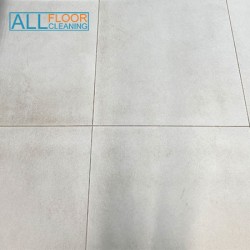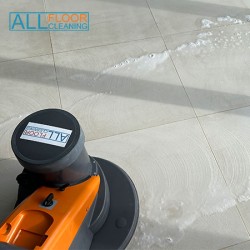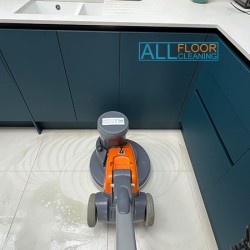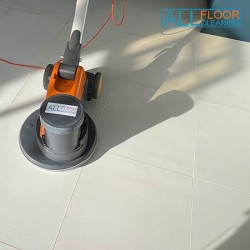Stone & Slate Tile Floor Cleaning South London
We offer expert cleaning and maintenance to help your tiled stone floors look their best. Depending on the type of tiles in your floor, it might not need a lot of care – but some types of stone can be fairly fragile and will benefit from professional attention.
For Your Home or Business
As a supplier of machinery and detergents to the trade since the 90s, we have the specialist equipment required to service larger contracts. We’re also pleased to quote for smaller jobs in high street shops, family homes, or shared accommodation.
Professional Services for Tiled Floors
- Maintenance & Deep Cleaning for all types of stone
- Grout Sealing essential protection for the ‘weakest link’ in most tiled floors
- Slate Sealing to prevent staining, corrosion and other damage
- Slate Polishing (and Stripping) to preserve and maintain a beautiful finish
- Problem Substance Removal – gum, oil, paint, glue etc
Cleaning
Slate (and other natural stone) Tiles
Slate (like marble and granite) will be corroded by either alkaline or acidic liquids – any many household cleaners are acidic. We use a professional, neutral pH floor cleaning detergent – usually Evans Lemon Gel – which will remove general dirt and also dissolve grease or oil, without damaging the stone.
We use a rotary machine with a scrubbing brush attachment (rather than a pad) because slate is not evenly deep – and also to properly reach into the grout between the tiles.
- Sweep to remove any loose debris that might scratch the floor if scrubbed into it;
- Apply diluted detergent to a small area of the floor (about 1 square metre);
- Work the liquid into the floor with the scrubbing brush to loosen soiling;
- Use our wet vac to remove the dirty liquid;
- Repeat steps two to four across the rest of the floor.
Ceramic Tile
We clean a glazed ceramic tile floor in the same way as we do slate: not for the sake of the tiles (glazed tiles are tough), but for the grout – this cement-based substance which is porous and easily stained or damaged.
Tricky Stains & Problem Substances
Alcohol will remove gum, glue or paint from slate tiles, but it will also remove sealant and polish, and can even corrode the tile. Slate is soft (for stone) and takes surface damage fairly easily.
Undiluted alcohol is dabbed onto the problem substance and left for enough time to dissolve/loosen it, before a blunt tool and/or clean towel is used to remove the alcohol and the problem substance. Careful application and prompt removal will usually avoid any surface damage to the flooring, but this cannot be guaranteed. This is a last resort for slate, only to be considered where normal scrubbing has failed.
The glaze on a ceramic tile is impervious to damage from alcohol.
Sealing (slate and other non-glazed stone)
The single most important factor in maintaining a slate floor is having it sealed when needed.
We use a professional one-coat liquid sealant that closes the pores of permeable stone to prevent liquids from being absorbed. It prevents staining or discolouration without affecting the colour balance of the tile.
Grout
Sealing a slate floor will also protect the grouting around the tiles. Grout is porous and can be stained by grease and grime. The lighter the grout, the more obvious the stain (a good reason to stay away from white grout).
Ceramic floor tiles don’t need protecting – but the grout between them does. Because glazed tiles are so tough, the grouting can often be neglected.
Liquid Polish (slate and other non-glazed stone)
Sealing should be regarded as absolutely essential for a slate floor, but there is an additional step you can take which is to have polish applied.
Unlike other types of stone (where diamond or powder polishing are options) we only recommend liquid polish for slate floors. It should ideally be applied right after professional cleaning to ensure that there is nothing on the floor that might either become trapped in the polish or prevent its proper adhesion to the surface.
We use Clover Diamond – an acrylic, polymer-based liquid that dries to a glossy ‘wet look’ but non-slip finish that will resist scuffs and light scratches.
Two coats are needed: the first should be allowed to dry for 30 minutes, and the second needs at least four hours before the floor can be walked on (overnight is preferable).
Chemical Stripping
Liquid polish will eventually become worn and begin to peel or flake. When this happens repairs are not possible: the polish (and seal) need to be completely removed before a new finish is applied. We use Clover Zip Strip because its caustic-free formulation means it’s safe to use on pH-sensitive surfaces like slate.
- stripping detergent is applied to a small section of floor
- that section is scrubbed using a low speed rotary machine fitted with a Victor Red Pad
- on an uneven surface, we may need to do a second pass with our brush attachment (which reaches a little deeper)
- the detergent and scrubbing dissolve what’s left of the old polish
- the sludgy liquid can then be sucked up with our wet vacuum cleaner
Once the floor has been stripped (and dried), we will seal it. Once that is fully dry we can also apply fresh coats of polish as detailed above. Ideally we would want to visit your property on two consecutive days (day one to strip and seal, day two to apply the polish).
Buffing (cleaning & polishing at the same time)
All stone floors (whether or not they are sealed or polished) can be buffed, provided that: (a) any seal and/or polish on the floor is still intact; and (b) the floor is not too dirty.
Buffing is a gentle process: it’ll give the best possible high gloss shine to a freshly cleaned or renewed surface, and it can also be used as a ‘top up’ for a lightly soiled floor that will clean and shine at the same time.
We normally use Clover Renew TD on stone floors because it helps preserve the finish, with the exception of glazed ceramic tile. Here we use Evans Lemon Gel instead.
Common Questions about Tiled Stone Floors
What sort of stone do I have, and how does that affect its maintenance?
If you have a tiled stone floor then chances are that it is either slate or ceramic.
Slate
Natural slate has variations in both colour and texture that make a visually interesting tiled floor with plenty of character. However, because slate is a fairly soft stone it’s quite easy to scratch or scuff it, and because it’s porous it will absorb and be stained by liquids spilt on its surface. That said, a properly cared for slate tile floor should last a lifetime.
Glazed Ceramic Tile
Glazed ceramic tiles* are a popular choice for flooring (indoors or outdoors) for many reasons, not least of which is that they are extremely tough. Most glazes will resist grease, grime and even hot liquids, and they are also very hard to scrape or scratch. The only downside is that if the finish is damaged, it cannot be renewed and the whole tile must be replaced.
* non-glazed ceramic tiles are rarely used indoors but should be considered to have the same weaknesses and need for protection as slate.
What’s the Difference?
Slate is a natural stone, whereas ‘ceramic’ is a catch-all term for different man-made materials e.g. clay/earthenware, brick and porcelain. This difference is important when it comes to cleaning and protecting your floor, because:
- slate is fairly fragile for stone and needs sealing (and preferably polishing also) to protect it from liquids and other damage; but
- ceramic tiles almost always come with a permanent factory seal that is incredibly strong and durable.
As simply as we can put it:
- a slate (or non-glazed ceramic) tile can have its finish restored or replaced; but
- a glazed ceramic tile can only be cleaned*, because the finish is literally ‘baked on’ and set for life.
* although the grout between tiles can be sealed
Is there anything I can do to keep my stone floor in good condition?
We recommend that all tiled floors are treated with the same respect. Glazed ceramic tile will resist dirt and liquids, but grout will not.
The floor should be swept (weekly in a domestic kitchen or bathroom, daily in a busy commercial building) with a soft broom or brush to remove small particles that might be ground in and causes scratches. Be wary of using vacuum cleaners on slate as hard plastic wheels can also cause surface damage (this is much less of a risk on ceramic tile).
Regular floor cleaners are likely to contain chemicals that are too harsh to use on slate: they might make your tiles look cloudy and dull. A pH neutral detergent should be used, with a mop or microfibre cloth. Finally, be sure to wipe away any spills immediately because liquids like coffee/tea, fizzy drinks, and wine can quickly penetrate and cause stains.
How often should I get my slate tiles resealed?
It depends entirely on the wear and tear your floor gets. As a rough guideline, we’d suggest annual re-sealing for a domestic kitchen, and every six months (or maybe even four) for a busy shop floor – but you can test for yourself.
Pour a little bit of cold water (just a few teaspoons) onto the surface and give it thirty minutes. If the water is still there after that time, you have an intact seal. If it has sunk into the floor, it needs resealing. If you’re not sure, please do call us – we’re always happy to give more specific advice.
Does floor polishing make tiled floors slick and slippy?
Every finish we use is carefully formulated to be safe to walk on, whether you are bare-footed or wearing shoes.
Can you work around furniture, or should it be removed before you arrive?
For certain jobs (cleaning or buffing) we don’t need access to the entire surface area at once, but we’d much prefer a room that’s easy to work in. If we’re applying sealant or liquid polish to tiling then the room / area has to be completely empty.
Our Prices
Please note we have a minimum £50 callout charge.
Tile: Slate, Stone, non-glazed Ceramic
Slightly soiled floors can be ‘Spray Cleaned & Buffed‘ to maintain and lightly seal. Dirty floors with no seal or a damaged seal must be Scrubbed or Stripped. Sealing and Polishing are optional extras.
| service | buffing | scrub/strip | sealing | polish |
| cost per m2 | £4 | £5 | £4 | £4 |
SCRUB / STRIP (deep clean): degrease / liquify & remove old polish
SEALING: only on a freshly Buffed, Scrubbed or Stripped floor
POLISHING: only after Sealing
Glazed Ceramic Tile
| type of cleaning | regular | deep |
| cost per m2 | £4 | £5 |
Grout Sealing: £2.50 per m2
Discounts Available
For larger jobs and scheduled service contracts please call to discuss your exact needs.
WE COVER CENTRAL & SOUTH LONDON WITHIN THE M25 AREA, INCLUDING:
| Addington | Addiscombe | Anerley |
| Balham | Banstead | Beckenham |
| Biggin Hill | Blackheath | Brentford |
| Brixton | Brockwell | Bromley |
| Camberwell | Caterham | Catford |
| Cheam | Chelsea | Chislehurst |
| Clapham | Coulsdon | Croydon |
| Crystal Palace | Dulwich | Epsom |
| Ewell | Forest Hill | Fulham |
| Godstone | Greenwich | Hammersmith |
| Hayes | Herne Hill | Hither Green |
| Kensington | Kingston | Leatherhead |
| Lewisham | Mitcham | Morden |
| New Malden | Norwood | Nunhead |
| Orpington | Oxted | Peckham |
| Penge | Purley | Putney |
| Redhill | Richmond | Roehampton |
| Sanderstead | Selhurst | Selsdon |
| Shirley | Sidcup | Streatham |
| Surbiton | Sutton | Sydenham |
| Thornton Heath | Tulse Hill | Twickenham |
| Wallington | Wandsworth | Warlingham |
| West Wickham | Westerham | Whyteleafe |
| Wimbledon | Woldingham | Worcester Park |



